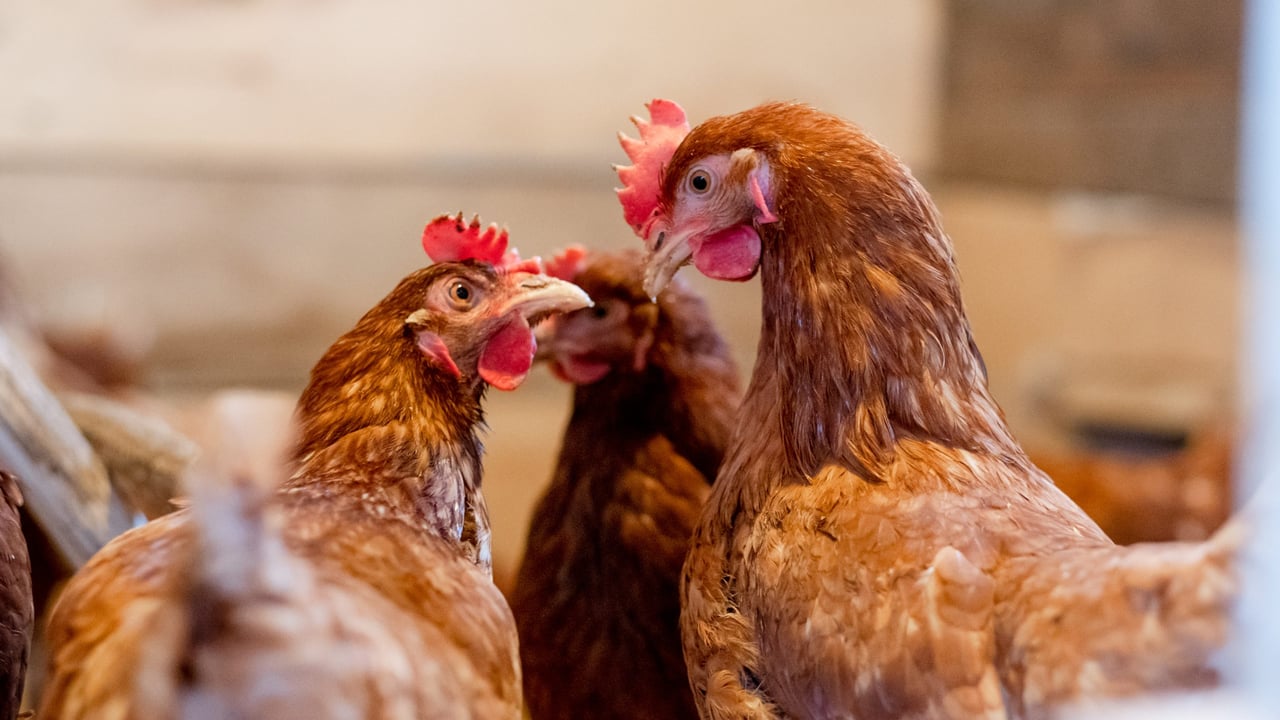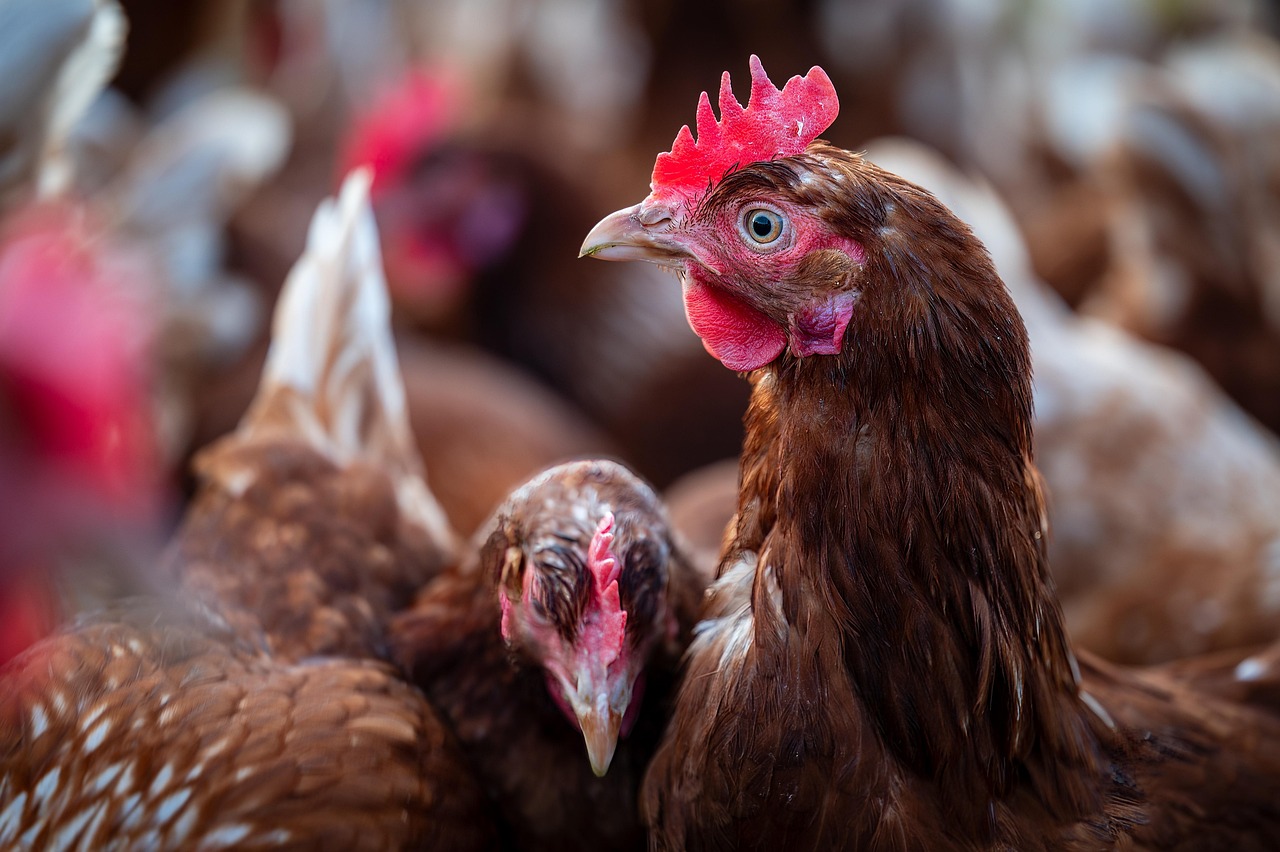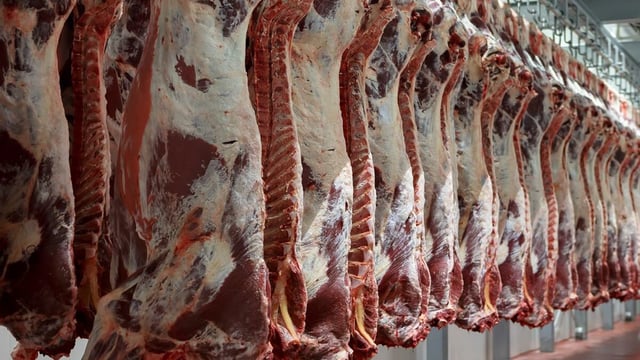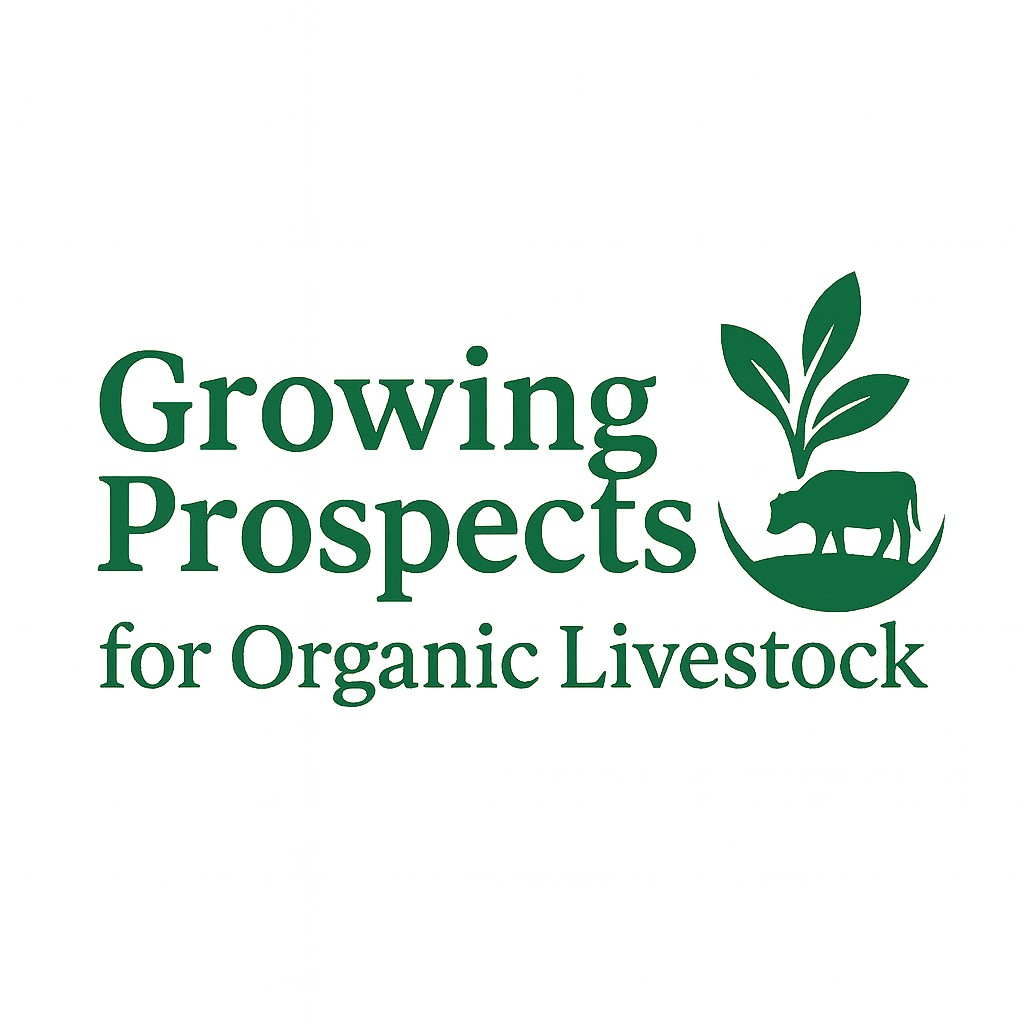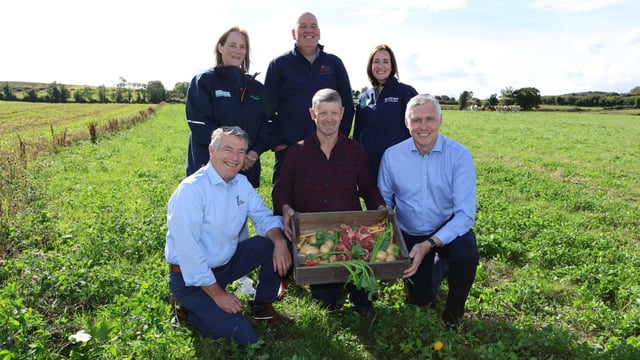Poultry farmers seek more support for when disease strikes
Farmers want "poultry disease compensation scheme" funding in Budget 2026.
The Irish Farmers' Association (IFA) has outlined that a scheme is needed for table egg layers and broiler breeders in particular, as the current scheme "does not fully reimburse losses or even the value of the stock at the time the loss is incurred".
"The current funding mechanism does not adequately support the needs of farming families or the poultry sector," according to the IFA.
"The Irish poultry industry consistently delivers improvements in biosecurity and disease prevention; however, in the rare case when support is required, it falls drastically short."
The IFA poultry committee, in conjunction with Poultry Ireland, is asking the government to allocate additional funding in Budget 2026 to the poultry sector for specific diseases.
The IFA is also seeking the establishment of an 'island culling team' to ensure the sector can "quickly respond to contain diseases should there be an outbreak".
Salmonella is one of the diseases of concern for poultry farmers, especially with its public health significance.
The IFA said that recently, there have been some detections of salmonella within the poultry sector.
"These cases were identified at stages where there was no risk to human health, highlighting the effectiveness of on-farm controls, sampling regimes and official testing structures," the IFA said.
"However, these incidents have underscored the considerable risks poultry farmers carry and the absence of adequate support mechanisms if a farm is affected."
The IFA is seeking support from the Department of Agriculture, Food and the Marine (DAFM) on a "national disease support structure" for the sector.
Salmonella is an "ubiquitous bacterium" with many serotypes, which are typically found in human and animal digestive tracts, a spokesperson for DAFM explained.
"There are a large variety of salmonella serotypes with some of them more common in poultry than others," DAFM said.
"All poultry types are susceptible to salmonella. Only a few of these salmonella serotypes are of poultry health interest, meaning that they cause disease in poultry, while not affecting humans."
These are: salmonella gallinarum, salmonella pullorum and salmonella arizonae - and DAFM told Agriland that they are not present in Ireland.
Poultry can carry zoonotic salmonella serotypes, including salmonella enteritidis and salmonella typhimurium.
These zoonotic salmonella serovars have the potential to cause human illness - but not illness in poultry.
"There is a low incidence of zoonotic salmonella serotypes in commercial poultry flocks in Ireland, in large part due to biosecurity measures and on-farm controls taken," DAFM said.
Under EU regulations, table egg layers (hens), broilers, broiler breeders, fattening turkeys, and turkey breeder flocks are tested at defined intervals for public health significant serotypes, according to the department.
"This is done by taking boot swabs and in some cases dust swabs to detect salmonella in the poultry environment," a DAFM spokesperson said.
"The monitoring is carried out under the Salmonella National Control Plan. Flocks considered to be backyard, i.e. on non-intensive holdings, are not included in the plan."
The Salmonella National Control Plan was established in 2012., with the aim of reducing or controling the prevalence of salmonella in a number of regulated serovars under the EU zoonoses regulations.
The plan operates on an ongoing basis and includes regular sampling by both department staff and farmers at multiple points during the life stages of the broiler flocks, DAFM explained.
There are multiple potential routes of entry of salmonella into a poultry flock - but these are controlled by good standards of biosecurity.
And credit is due to Ireland's poultry keepers: there is an overall low incidence of salmonella recorded in Irish flocks.
Salmonella vaccination in poultry is not carried out routinely in Ireland, partly due to this low incidence of salmonella, according to the DAFM spokesperson.
This low incidence, alongside the strict and good biosecurity measures in place and indirect benefits from heat treatment of poultry feed, are proven to be important measures in the control of salmonella in Ireland.
The department allocates funding annually for the compensation of zoonotic salmonella outbreaks in poultry flocks, on a ex-gratia basis.
The scheme applies only to suspected or confirmed outbreaks of salmonella enteritidis and typhimurium, the DAFM spokesperson said.
All broiler breeder and turkey breeder farms and table egg laying farms infected with these are subject to compulsory slaughter.
Payment is only made following confirmation by a department veterinarian that all relevant biosecurity measures have been adhered to.
Salmonella species can cause illness called salmonellosis in humans, the Food Safety Authority of Ireland (FSAI) explained.
In 2023, salmonellosis was the fourth most commonly reported foodborne infection in humans in Ireland, according to FSAI data, and the second most commonly reported overall in the EU.
Salmonella enterica is a key cause of foodborne illness, the FSAI told Agriland.
"Out of its six sub-species, enterica is the most relevant to human health and includes over 2,400 serotypes," the FSAI explained.
"In recent years, the majority of reported human cases of salmonellosis in Ireland have been attributed to its serotypes salmonella typhimurium and salmonella enteritidis."
People infected with salmonella typically develop symptoms between 12 and 36 hours after infection, but this can range between six and 72 hours.
The FSAI advises that the most common symptom is diarrhoea, which can sometimes be bloody.
Other symptoms may include fever, headache, and abdominal cramps. The illness usually lasts four to seven days.
"While most people recover without treatment, diarrhoea can occasionally be severe enough to require hospital admission.
"The elderly, infants, and those with impaired immune systems are more likely to develop severe illness," the FSAI said.
The authority notes that many foods have been identified as potential sources of transmission for salmonella to humans. This includes foods of animal origin, as well as non-animal foods that may be susceptible to faecal contamination.
Those of particular importance include undercooked poultry meat (chicken, turkey, duck, and goose) and undercooked pork meat, the FSAI warned.
The authority recently confirmed a recall of a batch of turkey burgers due to the possible presence of salmonella.
The implicated batch of Hogan's Farm Turkey Burgers has a use-by date of July 26, 2025, and although this date has passed, the FSAI noted that the product is suitable for home freezing.
As a result, the authority is advising consumers to check their freezers for the affected batch and not to eat the burgers.
"There have also been salmonellosis outbreaks linked to contaminated eggs and egg products, raw (unpasteurised) milk, fruit, vegetables, nuts and seeds, and processed foods (e.g., bakery products, sweets, and chocolate)," the FSAI told Agriland.
"Consumption of undercooked duck eggs or dishes containing raw or lightly cooked duck eggs have been linked to outbreaks of salmonellosis in Ireland in recent years."
To reduce the risk of exposure to salmonella and the development of salmonellosis, consumers should always cook food thoroughly.
Good hygiene must also be practised, along with avoiding cross-contamination.
Food should also be stored correctly. The FSAI notes that eggs are stored at ambient temperature in retail shops, but it is recommended that they are refrigerated by consumers at home.
According to the FSAI, there has been recent evidence to suggest that imported poultry products may present a higher risk of salmonella contamination compared to domesticallyproduced Irish poultry.
"This risk may vary depending on the country of origin for the poultry, the production standards they use, and the salmonella control measures they have in place," the FSAI explained.
In 2022, the FSAI undertook a National Microbiological Survey assessing the microbiological quality of chilled and frozen coated poultry meat preparations and poultry meat products intended to be consumed cooked.
Salmonella infantis was detected in 1.3% of the samples surveyed.
Four of the contaminated products originated from Poland (one) and Ukraine (three), while the country of origin for the fifth product could not be determined.

